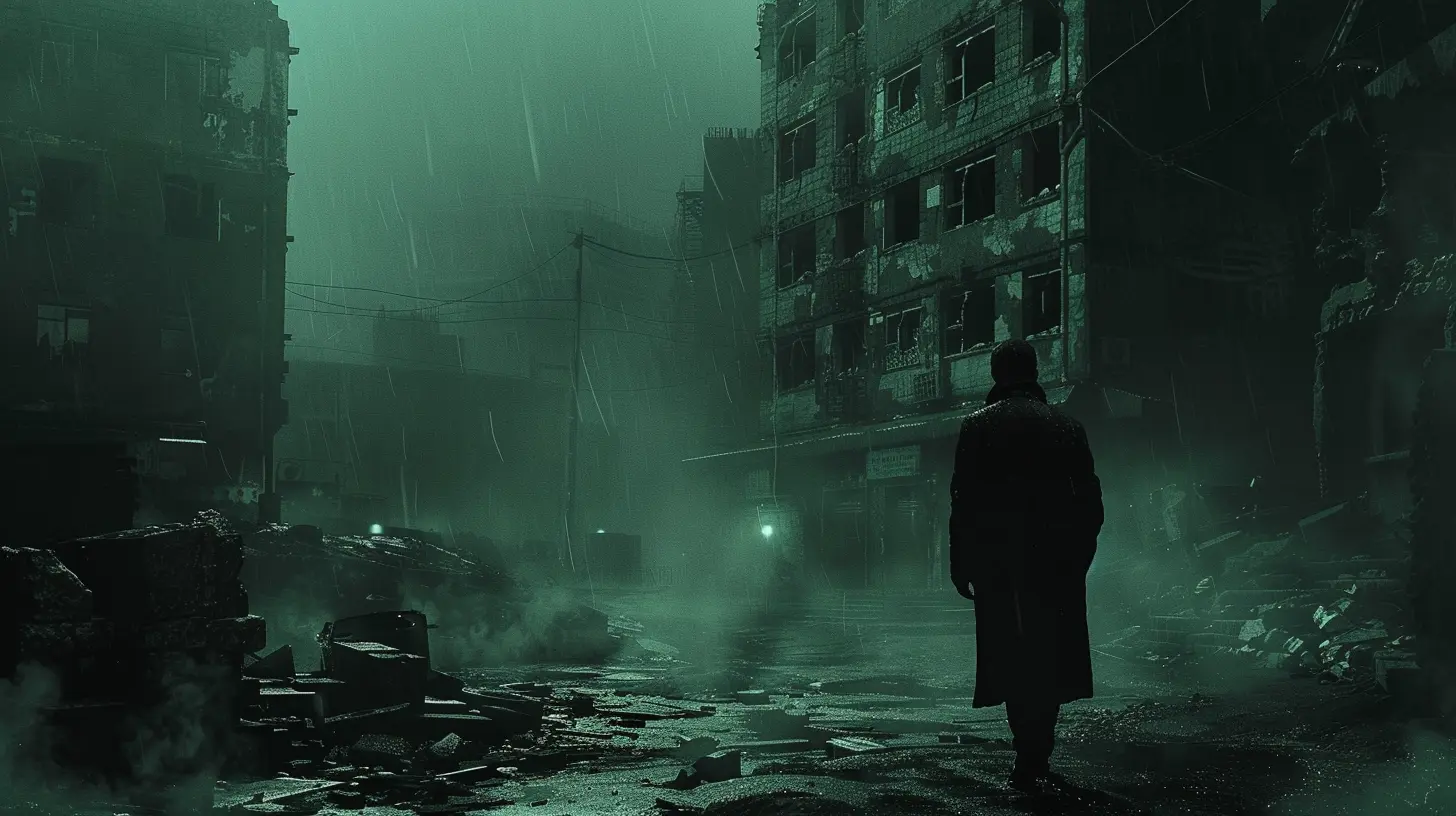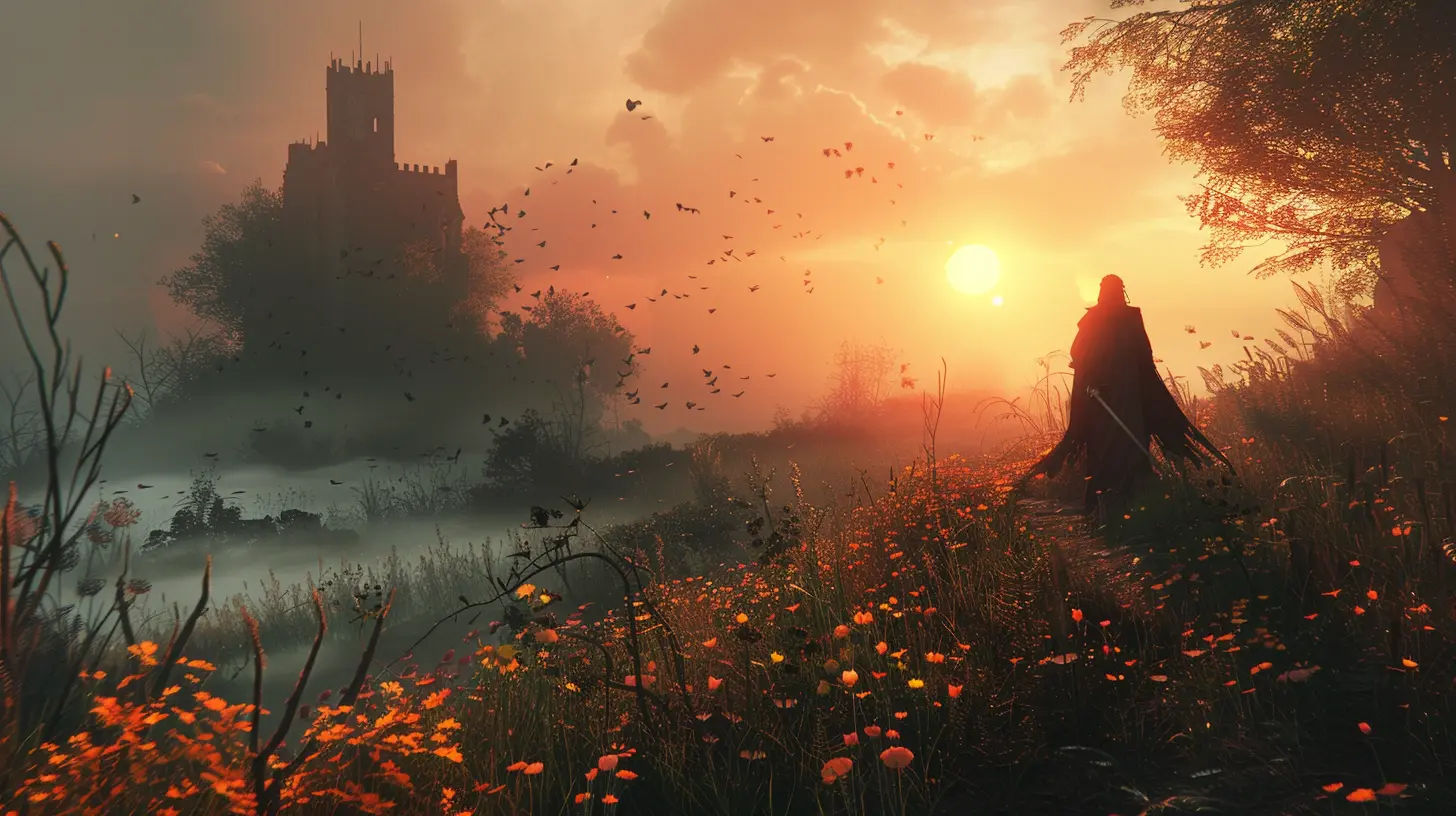Games That Redefined Narrative Expectations
18 September 2025
Once upon a pixelated time, video games were all about high scores, collecting coins, and stomping on the occasional turtle. Fast forward a few decades, and now we’re crying over polygonal characters and having existential crises over dialogue trees. Wild, right?
The evolution of gaming narratives has been nothing short of cinematic wizardry. Some games didn’t just tell stories—they reimagined how stories could be told through interactive experiences. Let’s dive into the legendary titles that flipped the script (literally) and redefined what it means to tell a story in gaming.
What Makes a Game’s Narrative Stand Out?
Before we start name-dropping like we're at the Oscars, let’s talk about what makes a game narrative revolutionary. It’s not just about plot twists or emotional cutscenes—although those definitely help. These games rewrote the rules by making the player feel like a co-author, not just a passive observer.A groundbreaking narrative game tends to do at least one (but usually all) of the following:
- Blurs the line between gameplay and storytelling
- Delivers emotional gut punches
- Offers player-driven consequences (hello, moral dilemmas!)
- Breaks the fourth wall like it's drywall
Now, grab your controller (or keyboard), because we’re about to hit “Start” on a journey through the games that blew our narrative-loving minds.
1. The Last of Us (2013) – When Brutality Meets Tenderness
Let’s be real: if you didn’t cry at least once during The Last of Us, you might be a clicker in disguise.Naughty Dog’s post-apocalyptic masterpiece isn’t just about smashing infected heads with bricks—though that's undeniably fun. It’s about Joel and Ellie, and their painfully human relationship forged in a world that’s lost its humanity.
The game gives us more than a plot—it gives us a bond. The writing, performances, and character arcs elevate it to near-Shakespearean levels of drama. Add in the second game (which cranks the trauma dial up to 11), and you've got a saga that challenges players to examine empathy, revenge, and loss in ways they didn’t sign up for—but couldn’t walk away from.
2. Bioshock (2007) – Would You Kindly Rethink Everything?
Ah, Bioshock. The game that whispered sweet dystopian nothings while stabbing us in the back with a philosophical twist.Set in the underwater city of Rapture (which is as beautiful as it is bonkers), Bioshock starts off like a conventional shooter... until it isn’t. About halfway through, the game pulls the rug so hard you’re left staring at the narrative subfloor.
The infamous “Would you kindly?” twist isn’t just clever—it’s a commentary on agency in games. Are you really in control? Or are you just following orders like a glorified meat puppet?
Mind. Blown.
3. Red Dead Redemption 2 (2018) – Yeehaw With Feelings
Red Dead Redemption 2 might seem like your run-of-the-mill cowboy simulator, but oh boy—it’s so much more than that.You play as Arthur Morgan, an outlaw with a heart, a past, and a whole heap of emotional baggage. At first, he’s a gruff gunslinger trying to survive. By the end? He’s a fully fleshed-out character who’ll make you reflect on morality, loyalty, and whether you really needed to rob that train (spoiler: you didn’t, but it was fun).
RDR2 doesn’t just tell a story—it immerses you in one. It’s like stepping into a novel where every choice, every ride into the sunset, and every campfire conversation shapes the world around you.
4. Undertale (2015) – Pacifism, Puns, and Playing With Expectations
Undertale is the indie darling that flipped RPG conventions upside down, gave them a noogie, and then hugged them.Created by Toby Fox (basically a one-man dev army), Undertale lets you choose: fight or make friends. The twist? Your choices really matter—and not in the usual “here’s a good ending and a bad ending” way. The game remembers. The game judges. The game... trolls you, honestly.
Its brilliance lies in its subversion. Whatever you expect from a traditional RPG, Undertale does the opposite—and makes you feel things you didn’t think a game involving a skeleton who loves spaghetti could make you feel.
5. What Remains of Edith Finch (2017) – Tragedy Told Through Mini-Stories
If storytelling were an Olympic sport, Edith Finch would be doing emotional gymnastics and sticking the landing every time.This narrative-driven game presents a series of vignettes tied together by the Finch family’s curse of untimely deaths. Sounds grim? It is. But it’s also poetic, visually stunning, and weirdly whimsical.
Each story plays out in a unique way—some are surreal, some are straight-up heartbreaking, and one even plays out like a comic book horror story. It’s like walking through an interactive diary where every page is a different genre.
Edith Finch doesn’t just tell a story—it layers stories like a tragic cake, and somehow, you’ll want seconds.
6. Life is Strange (2015) – Butterfly Effect, But Make It Emotional
Remember those “choose your adventure” books? Life is Strange said, “Hey, what if we made one, but with teenagers, time travel, and way more heartbreak?”You play as Max Caulfield, a photography student who discovers she can rewind time. Handy when dodging pop quizzes… tragic when trying to stop a friend’s death.
The game’s charm lies in its slow-burn storytelling. Small choices spiral into massive consequences. Conversations matter. Relationships evolve. And yes—you’ll probably regret at least one major decision and lie awake at night wondering what could’ve been.
Bonus points for the killer indie soundtrack and Pacific Northwest aesthetic that screams “emotional Tumblr post circa 2015.”
7. Silent Hill 2 (2001) – Psychological Horror That Cuts Deep
Not all groundbreaking narratives are feel-good tales. Some are crawling nightmares soaked in symbolism and fog.Silent Hill 2 isn’t just horror—it’s psychological horror, baby. It doesn’t rely on jump scares (though it has those)—it messes with your brain like a David Lynch film that got lost in a haunted video store.
You play James Sunderland, a grieving husband who receives a letter from his dead wife telling him to meet her in Silent Hill. What unfolds is a harrowing descent into guilt, trauma, and enough symbolism to make Freud break out in a sweat.
This game doesn’t just scare you—it unsettles you, leaving a lingering discomfort that sticks longer than any slasher villain.
8. Disco Elysium (2019) – Dialogue-Driven Brilliance With a Side of Existential Dread
No combat. No traditional quests. Just you, your mullet, your inner demons (literally), and a city full of political chaos.Disco Elysium came out of left field and instantly became a cult classic. You play a detective who's so hungover he’s forgotten not only his case but his entire identity. Your thoughts speak to you. Your decisions shape your personality. And everything—everything—is handled through dialogue.
It’s like if a choose-your-own-adventure book and a philosophy textbook had a love child who was raised by Hunter S. Thompson.
The storytelling here is dense, darkly funny, and oh-so-satisfying. You can be a superstar cop, a communist poet, or just a disaster of a human being. Whichever route you take, you're in for one of the richest narrative experiences in gaming.
9. Firewatch (2016) – The Art of Saying So Much With So Little
Set in the Wyoming wilderness, Firewatch is a first-person adventure game where you play as Henry, a fire lookout trying to escape his messy life. Your only human contact? Delilah, your chatty supervisor on the other end of a walkie-talkie.There’s mystery (oooooo), intrigue (ahhhhh), and a whole lot of beautifully written dialogue that feels shockingly real. What’s brilliant is how the game builds an intense emotional connection without face-to-face interaction or dramatic plot twists.
It’s proof that sometimes, the quietest stories shout the loudest.
10. Heavy Rain (2010) – Press X to Emotionally Spiral
Heavy Rain walked so cinematic games could run in slow motion under the rain, clutching emotionally compromised plot points.Quantic Dream’s interactive drama-thriller puts you in control of four characters, all linked by a serial killer case. Your choices matter—majorly. Characters can die. The story can completely shift. And yes, there’s a scene that will make you shout “JASON!” until your neighbors question your sanity.
It’s the closest a game has ever come to letting you play a tense HBO miniseries.
Final Thoughts: The Future of Video Game Narratives
We’ve come a long way from “save the princess” storytelling. Today’s games challenge us, surprise us, and even change us. As technology and creativity keep evolving, who knows what kind of narrative sorcery the next decade of gaming will bring?Will we cry over NPCs we barely know? Will AI-driven characters remember our past playthroughs and throw shade accordingly? Whatever happens, one thing's for sure—gaming stories are only getting bolder, weirder, and way more personal.
So, pop the popcorn, charge that controller, and prepare to feel things, because the era of storytelling in games is just getting started.
all images in this post were generated using AI tools
Category:
Game NarrativesAuthor:

Greyson McVeigh
Discussion
rate this article
1 comments
Sorin Cannon
Absolutely loved this article! It’s fascinating how games have evolved to tell stories that resonate deeply with us. The blend of interactive experiences and rich narratives makes gaming such a unique medium. Can’t wait to dive into some of the titles mentioned here—let the adventures begin! 🎮✨
October 19, 2025 at 2:35 AM

Greyson McVeigh
Thank you so much! I'm thrilled you enjoyed the article. I hope you find the featured titles as captivating as they are groundbreaking! Happy gaming! 🎮✨


